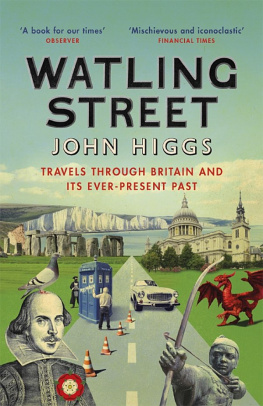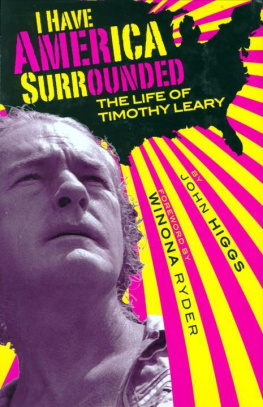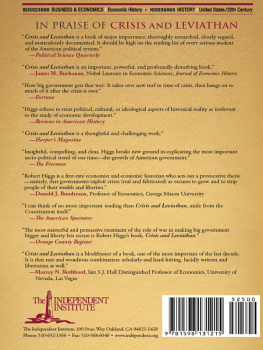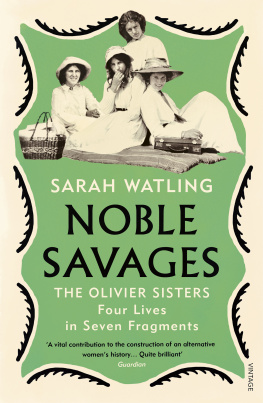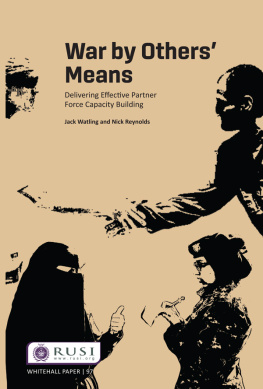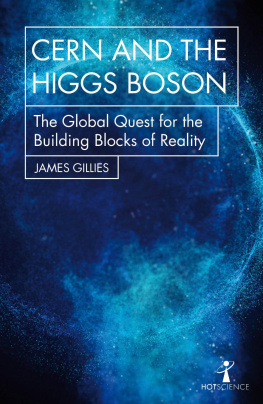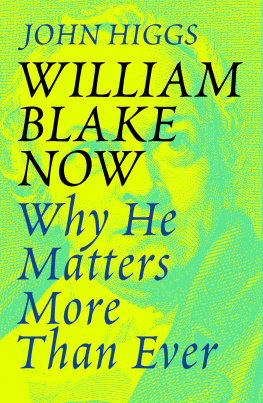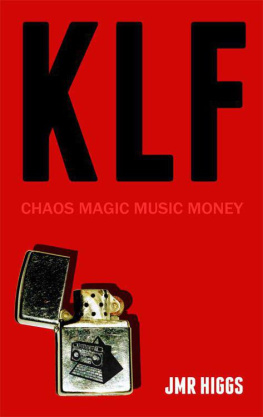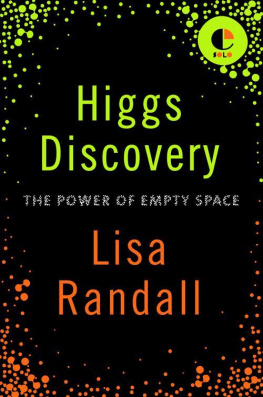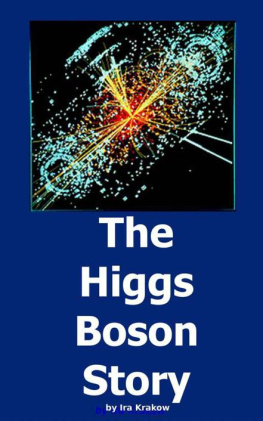Higgs - Watling Street
Here you can read online Higgs - Watling Street full text of the book (entire story) in english for free. Download pdf and epub, get meaning, cover and reviews about this ebook. year: 2018, publisher: Orion Publishing Group;Weidenfeld & Nicolson, genre: Religion. Description of the work, (preface) as well as reviews are available. Best literature library LitArk.com created for fans of good reading and offers a wide selection of genres:
Romance novel
Science fiction
Adventure
Detective
Science
History
Home and family
Prose
Art
Politics
Computer
Non-fiction
Religion
Business
Children
Humor
Choose a favorite category and find really read worthwhile books. Enjoy immersion in the world of imagination, feel the emotions of the characters or learn something new for yourself, make an fascinating discovery.
Watling Street: summary, description and annotation
We offer to read an annotation, description, summary or preface (depends on what the author of the book "Watling Street" wrote himself). If you haven't found the necessary information about the book — write in the comments, we will try to find it.
Watling Street — read online for free the complete book (whole text) full work
Below is the text of the book, divided by pages. System saving the place of the last page read, allows you to conveniently read the book "Watling Street" online for free, without having to search again every time where you left off. Put a bookmark, and you can go to the page where you finished reading at any time.
Font size:
Interval:
Bookmark:
In Watling Street, an exploration of modern Britain and what it means to be British today, Higgs offers a more nuanced understanding of the national psyche... a book for our times
Ian Thomson, Observer
Mischievous and iconoclastic... [Higgs] is a systematising imagination, able to harness disparate elements and find the patterns that animate them; that he does so in a more socially inclusive manner than many enriches his theories enormously
Melissa Harrison, Financial Times
A new vision of England... full of magic, mystery and bits of William Blake
Ian Samson, Times Literary Supplement
A bravura piece of writing Bill Bryson on acid
Tom Holland
Myths combine with staggeringly fascinating facts, while Higgs take on our national imagination and the nature of history is refreshingly original... [A] mad, but brilliant, odyssey
Rebecca Armstrong, i newspaper
Watling Street is unusual, original and strangely beautiful. Its full of wonderful stories about this remarkable road, expertly brought to life by Higgs. And even though its a travel book, it has more to say about the current climate than most political books
Jamie Bartlett, author of Radicals
Erudite, funny, philosophical, often wildly esoteric and packed with factual asides... Above all Watling Street provokes a new and exciting discourse on national pride and identity
Charlie Connelly, New European

For Mum and Dad, and all before.
CONTENTS
Im trying to take a stance and rise above my contradictions But Im just a bunch of words in pants and most of those are fiction.
Mike Scott, Long Strange Golden Road
I love walking down the middle of a road when theres no traffic and the street is deserted. The regular rules have been suspended and things are not in their normal place, which always feels pleasantly transgressive. It usually requires a road closure, street party or treacherous weather, but it is sometimes possible in the early hours of the morning when the traffic has dwindled away to nothing and the night is still and calm and quiet. In the words of the seventeenth-century ballad, the world is turned upside down. At times like these walking in the middle of the road feels liberating, as if anything might happen.
It is a little after 4 a.m. on Sunday, 21 June 2015, just before dawn on the longest day. I am walking down Midsummer Boulevard in the heart of Milton Keynes in Buckinghamshire. It is deathly quiet. I cannot see a single person or moving car. These are perfect conditions for a walk along the centre of the road, yet Im finding the experience a little disconcerting. Its not the street itself that is at fault. There is something about the town.
Milton Keynes looks like a Canadian airport which has started a new life in the Buckinghamshire countryside. It is a land of squat boxy office buildings and endless roundabouts. It feels more concerned with the needs of cars than of people, not least because of the signs that declare Pedestrians do not have priority in black text on a yellow background. Another common sign, found on walls near pedestrian underpasses, seems to unintentionally reveal a little too much about the towns reputation. It states simply, This is not a toilet.

Pedestrians do not have priority
Poor Milton Keynes. Its notoriety is not entirely fair. For all that it is the butt of countless jokes about concrete and roundabouts, the people who live here seem to like it. It performs well in reports on quality of life and economic activity. Outsiders criticise the large amount of retail outlets and car parks, yet these are things we would value and use if we had more of them where we lived. I suspect it is not what Milton Keynes has that is the real cause of its notoriety, but what it lacks. It is a town without a past.
Milton Keynes is a new town. It was founded in January 1967, back when Harold Wilson was Prime Minister, Patrick Troughton was Doctor Who and The Beatles were recording Sgt. Peppers Lonely Hearts Club Band. The post-war population boom necessitated a huge increase in home building, and the simplest way to achieve this was to construct about a dozen new towns from scratch. Milton Keynes was the largest of these, intended to provide homes for a quarter of a million people. In the years that followed, our housing shortage became a problem for the private sector to tackle, rather than grand centrally planned government schemes. This hasnt worked well, and in 2017 the government announced plans to build 14 brand-new garden villages. These will be much smaller than the new towns of the 1960s, and Milton Keyness unhappy reputation is part of the reason for this. The town is perceived as unattractive and not an experiment to repeat on the same scale.
Midsummer Boulevard is at the heart of the city, nearly a couple of kilometres long and unnaturally straight. The original design assumed pedestrians would get about by means of a monorail, although this was never built. A central strip, planted with a row of trees, separates the westbound and eastbound lanes. The trees are a sycamore hybrid called London Planes. They are beloved by town planners due to their ability to thrive in polluted air with compacted roots, and for being the sort of high-branched tree that is almost impossible for children to climb.
A half-dozen crows launch themselves from the branches of a London Plane as I approach. They break the silence with their cries. This feels worryingly like an episode of The Walking Dead.
Its not the zombie-movie atmosphere that robs the simple act of walking down the middle of the road of its pleasure. I have not yet acclimatised to my surroundings. Milton Keynes is only four years older than I am, so there is nothing here that feels like history. In a country as old as Britain, being entirely surrounded by the modern world takes getting used to.
Our surroundings give us context. In modern business districts, such as Canary Wharf or central Milton Keynes, the present is all that matters and the near future is all that is thought about. In a medieval city such as Oxford or Cambridge, the backdrop is different and that alters how we see ourselves. There is more to life, in places like that, than the immediate future. If we go to a place that is thousands of years old, such as the Giza pyramids or Stonehenge, then the shift in our sense of ourselves is even more pronounced. As individuals we become insignificant, but at the same time the story we are part of becomes much greater.
This is why, at the same time as I am walking along this deserted Buckinghamshire road, 23,000 people are gathered at Stonehenge a hundred miles to the south-west. They are waiting to greet the sunrise of the longest day. This massive crowd is remarkable because, beyond those old stones in that Wiltshire landscape, there is nothing else there. It is not like a festival, with bands and tents and exciting things around every corner. It is simply thousands of people standing in a field overnight, waiting for the sun. The only attraction is the age of the stones the crowd congregates around, which puts their lives in the context of 5,000 years of history. Seeing yourself in those terms affects you.
Five thousand years is a long time. Kingdoms, languages and empires have come and gone, stories have flourished and been forgotten, gods have been worshipped and discarded. And yet, throughout that time, people have always returned to those stones to watch the sunrise on the longest day. The size of the crowds may be a modern phenomenon but what evidence we have suggests that visitors have always gone to those stones at midsummer. If you were looking for some defining behaviour of the inhabitants of these islands across that great stretch of history, then this would be a strong contender.
Next pageFont size:
Interval:
Bookmark:
Similar books «Watling Street»
Look at similar books to Watling Street. We have selected literature similar in name and meaning in the hope of providing readers with more options to find new, interesting, not yet read works.
Discussion, reviews of the book Watling Street and just readers' own opinions. Leave your comments, write what you think about the work, its meaning or the main characters. Specify what exactly you liked and what you didn't like, and why you think so.

